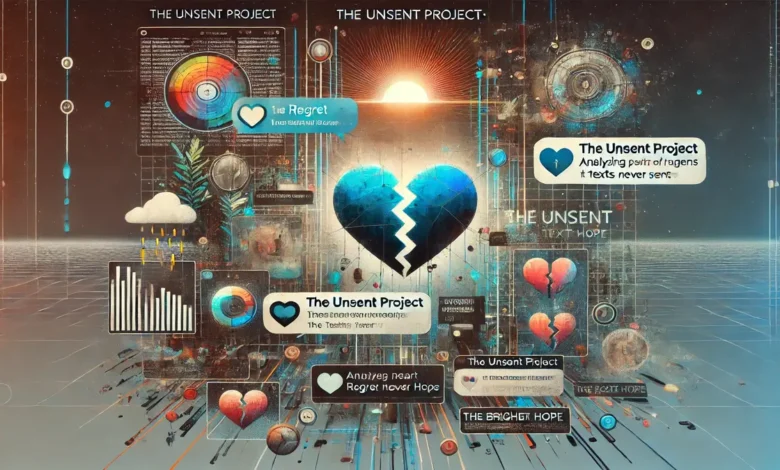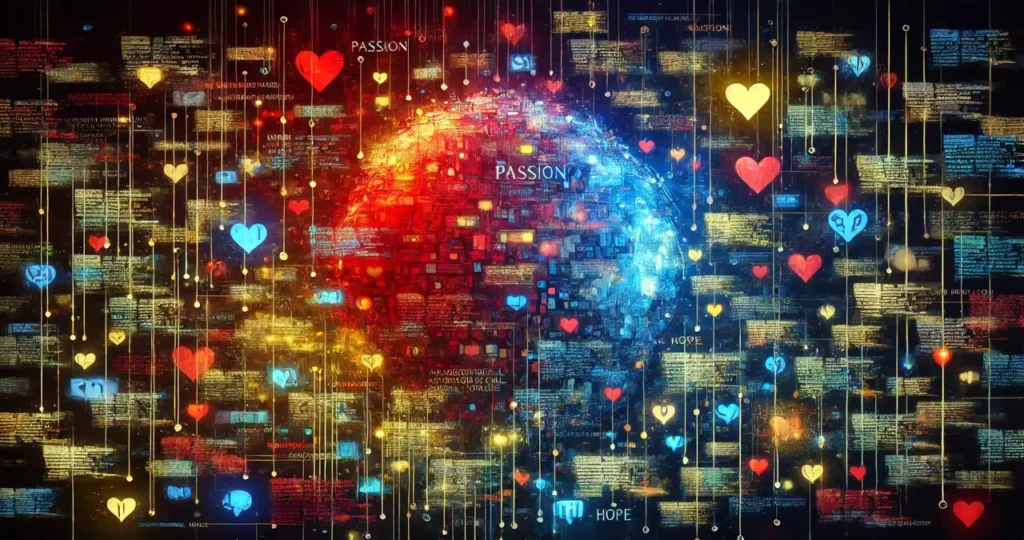The Unsent Project: Analyzing Patterns of Regret and Hope in Texts Never Sent

Introduction
In the digital age, communication has transformed dramatically, giving rise to a fascinating phenomenon: the unsent message. “The Unsent Project,” a unique platform, collects these unsent texts, revealing the profound emotions often withheld in our digital drafts. This article delves into the intricate patterns of regret and hope that emerge from these unshared communications, shedding light on the unspoken narratives that shape human relationships.
The Essence of The Unsent Project

Founded by artist Rora Blue, The Unsent Project began as a social experiment exploring the hidden feelings people choose not to send. Participants submit texts they wrote but never sent, often accompanied by the intended recipient’s name and a color representing their feelings. The project has amassed a vast collection of messages, each a snapshot of personal sentiment at a specific moment.
Patterns of Regret in The Unsent Project
One of the most compelling aspects of The Unsent Project is its ability to illustrate patterns of regret. Many submissions express sorrow for words left unsaid or actions not taken. These messages often contain apologies, confessions of love, or longing for a past relationship, highlighting the emotional weight of holding back.
- Missed Opportunities: Many texts reveal regret for not expressing love or gratitude when the opportunity was present. These messages are poignant reminders of how timing is crucial in relationships.
- Unresolved Conflicts: Other texts reflect unresolved conflicts, where individuals write to clear misunderstandings or to express forgiveness, hoping to find closure in their digital draft box.
- Self-Reflection: The unsent messages also serve as a form of self-reflection, where senders acknowledge their flaws and missed opportunities to change the course of a relationship.
Themes of Hope in The Unsent Project
Contrasting with regret, another dominant theme in The Unsent Project is hope. Despite the heartache and yearning evident in many messages, there is also an undercurrent of optimism and a desire for resolution.
- Reconciliation: Some unsent texts convey hope for reconciliation, where the sender holds onto the belief that broken relationships can be mended and past hurts can be healed.
- Future Possibilities: Some messages look forward to potential futures, expressing hope that things might change, that feelings might be reciprocated, or that circumstances might align for a second chance.
- Emotional Release: Even in their unsend state, these messages provide a form of emotional release, offering the sender a sense of relief by articulating their deepest feelings, even if only to themselves.
Analyzing the Impact of Keeping Messages Unsent
The act of writing a message without sending it can be profoundly therapeutic. Psychologists suggest that articulating feelings helps individuals process emotions and clarify their desires and boundaries. The Unsent Project provides a safe space to express these unsent words, acting as a collective diary of unspoken thoughts.
- Mental Health Implications: The project sheds light on the mental health implications of unsent messages. It highlights how unsent texts can be a source of unresolved tension or a therapeutic outlet.
- Social Connections: The patterns observed in The Unsent Project also affect social relationships. They underscore the importance of communication in maintaining and nurturing relationships and the consequences when it fails.
Cultural Reflections and The Unsent Project
The Unsent Project does more than catalog individual emotions; it offers a cultural reflection on how people deal with love, loss, and longing in the modern world. It shows the universality of specific emotions and the unique ways individuals cope with them across different cultures and demographics.
Conclusion
The Unsent Project poignantly reminds us of the complex interplay between regret and hope that characterizes much human interaction. Analyzing the patterns in these texts provides valuable insights into the emotional landscapes of relationships, revealing both the pain of words left unsaid and the solace found in private contemplation. The Unsent Project highlights the profound impact of our unshared words and the hidden threads that connect us all as we continue to navigate our digital lives.
This article has provided an in-depth exploration of The Unsent Project, emphasizing its role in uncovering the patterns of regret and hope inherent in the texts we never send. This analysis gives us a deeper understanding of human emotion and communication in the digital era.
FAQS
What is The Unsent Project?
The Unsent Project is a social experiment and art project initiated by Rora Blue. It collects unsent text messages from people worldwide, each reflecting deep personal emotions and the color they associate with their feelings towards the person they intended to send it to. The project provides insight into the private, unexpressed thoughts that individuals hold back in digital communication.
Why do people submit messages to The Unsent Project?
Individuals submit messages to The Unsent Project for various reasons, including wanting emotional release, closure, or sharing their unexpressed feelings in a safe, anonymous space. By articulating these thoughts, submitters often find relief and understanding about their emotional states.
What are common themes found in the messages of The Unsent Project?
The most common themes in The Unsent Project include regret and hope. Regret is often expressed through messages that convey sorrow for not having taken action or spoken words at the right time, unresolved conflicts, and self-reflection on personal mistakes. Hope is found in messages that express desires for reconciliation, future possibilities, and emotional healing.
How does The Unsent Project impact mental health?
The Unsent Project can have significant mental health implications. Writing unsent messages allows individuals to process and articulate emotions, which can be therapeutic. However, holding these unsent messages without resolving the underlying feelings can also perpetuate emotional tension and stress.
Can participation in The Unsent Project improve personal relationships?
While The Unsent Project itself is not a direct tool for improving personal relationships, writing and reflecting on unsent messages can help individuals better understand their emotions and communication needs. This self-awareness can lead to more open and honest interactions with others, improving relationships over time. However, the project also highlights the importance of direct communication in addressing unresolved issues and fostering connections.





